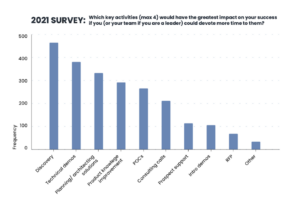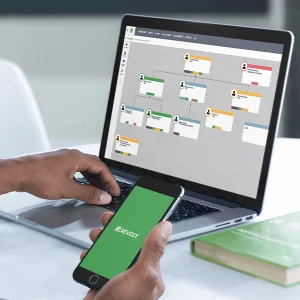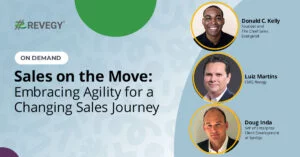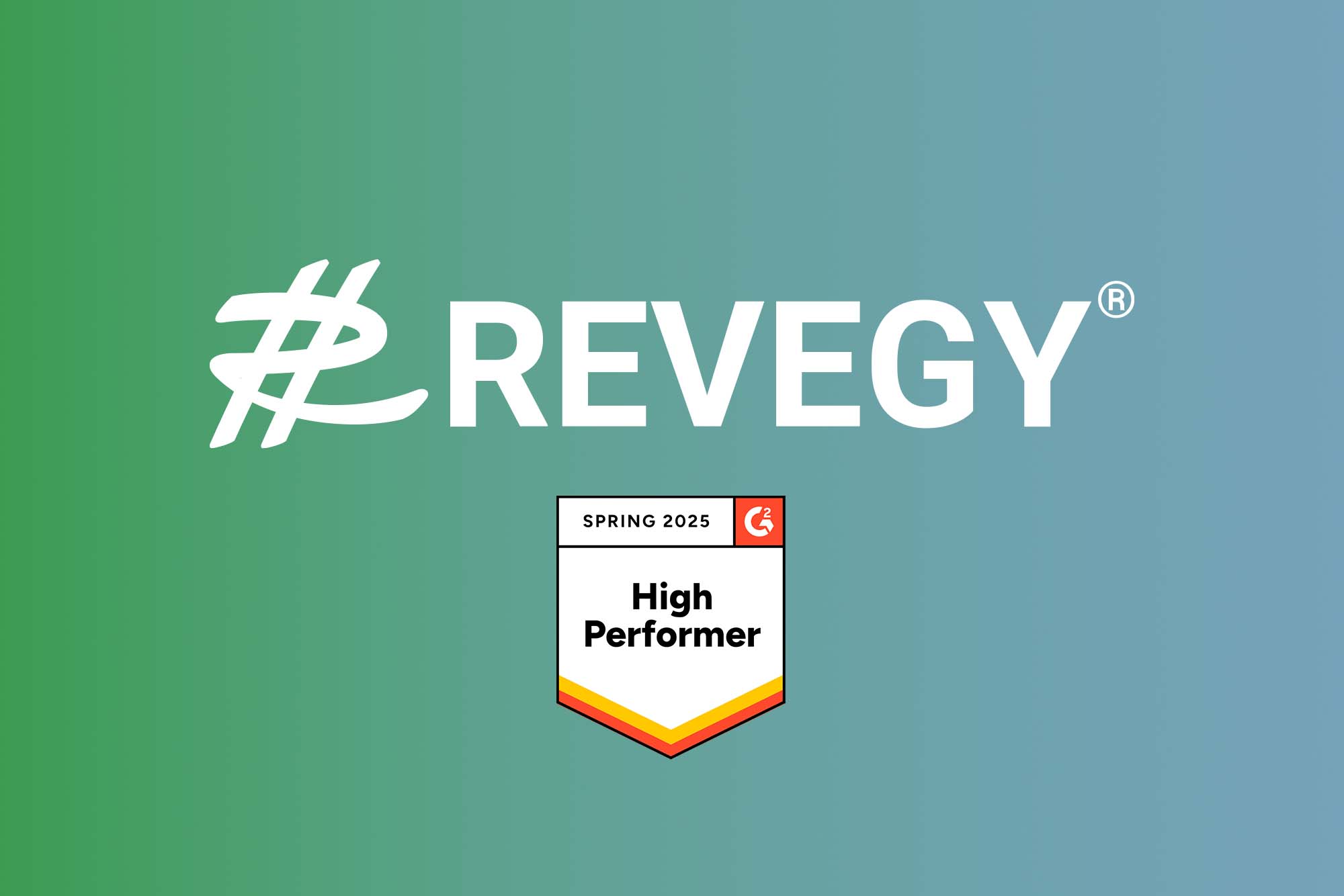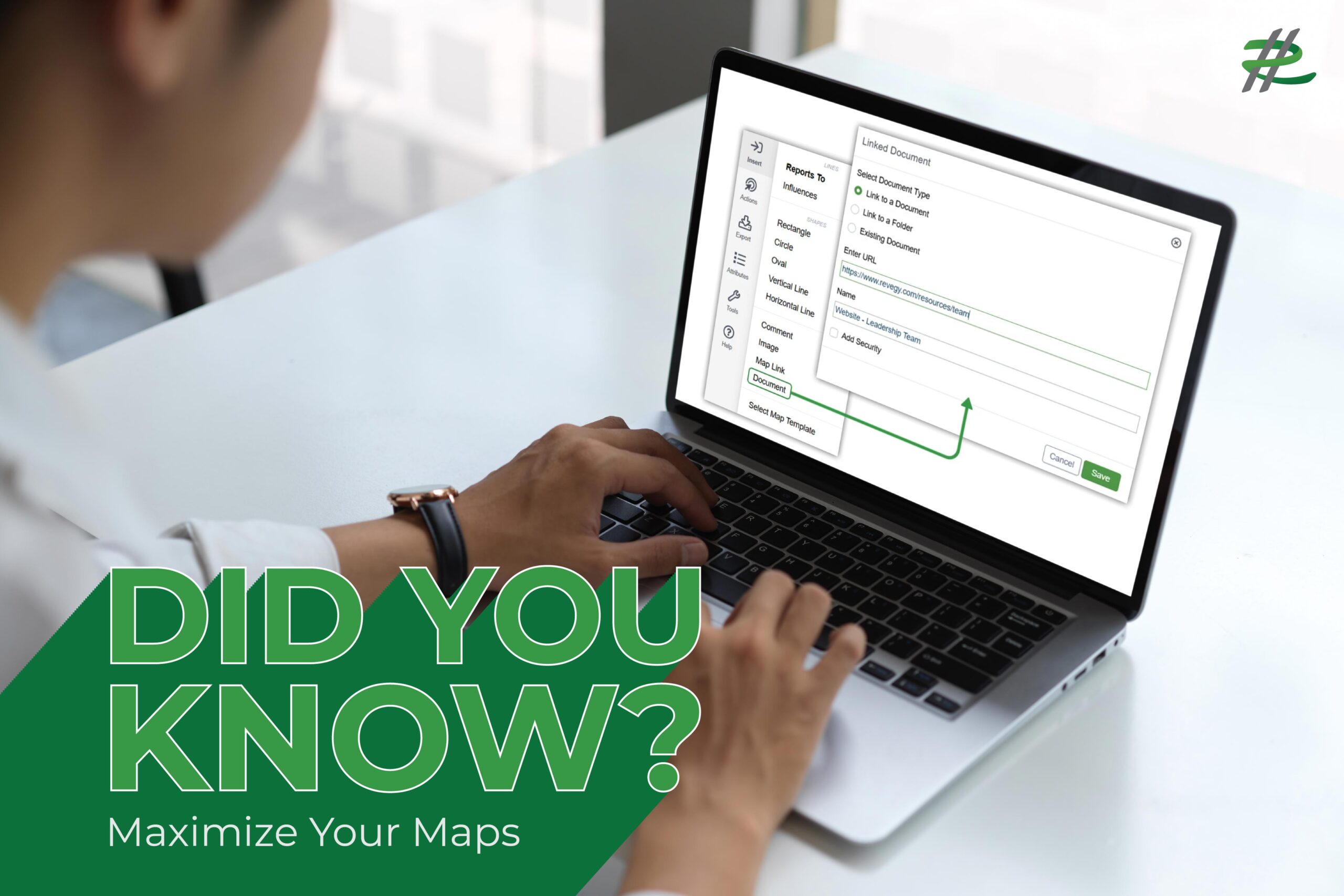A closed deal is just what you aim for as a salesperson. But sometimes, we forget that a closed deal is the cumulative result of all the atomic efforts until that moment, including steps such as lead qualification and discovery. These efforts are commonly referred to as pre-sales process which includes all steps taken to bring a deal to a close. In this article, we will learn everything about pre-sales to boost your conversions and ROI. But let’s start by trying to define pre-sales.
What is the Pre-Sales Process?
The pre-sales process is a critical component of the sales cycle, designed to prepare and qualify opportunities before they are handed off to the sales team. It encompasses a series of structured steps and activities aimed at understanding customer needs, demonstrating the value of a product or service, and ensuring that the leads passed to the sales team are highly qualified and ready to convert. By setting a strong foundation, the pre-sales process maximizes efficiency and improves the likelihood of closing deals successfully.
Key Steps in the Presales Process
Lead Qualification
Lead qualification is the initial step where potential customers are assessed based on their fit for your product or service. This involves evaluating factors like budget, authority, need, and timing (commonly referred to as BANT criteria). A robust qualification process ensures that your sales team focuses only on high-potential opportunities.
Discovery
Discovery involves gathering in-depth information about the customer’s pain points, goals, and requirements. This step helps you understand the context of the customer’s needs and identify how your solution aligns with their objectives. Effective discovery often includes one-on-one conversations, needs assessments, and research into the customer’s industry or competitive landscape.
Product Demo
The product demo is where the pre-sales team showcases the solution’s capabilities to address the customer’s specific challenges. A tailored and interactive demo helps build trust and illustrates the tangible benefits of your offering. It’s an opportunity to answer technical questions, clarify doubts, and position your product as the best fit.
Proposal Development
Based on insights from the discovery and demo stages, the pre-sales team collaborates with sales to craft a compelling proposal. This document outlines the solution’s features, benefits, pricing, and implementation plan. A well-prepared proposal demonstrates a deep understanding of the customer’s needs and strengthens your competitive edge.
Implementation Planning
Implementation planning involves mapping out how the solution will be delivered and integrated into the customer’s existing processes. This step often includes timelines, resource allocation, and a high-level roadmap to ensure a seamless transition from purchase to onboarding.
Follow-Up and Feedback
Consistent follow-up is essential to address lingering concerns and reinforce the value of your proposal. Gathering feedback during this stage also helps refine your approach for future opportunities and strengthens the relationship with the customer.
Who Are Presales People?
A presales professional is a blend of salespeople and engineers. They’re trained to take care of the technical aspect of a sale before the sales rep takes the customer through a “closed deal.” Generally, the presales management team takes deals forward by showing prospects the solution to their problem through your product or service.
Sales reps spend the most time on discovery which comes under the hood of the presales process. Source
Presales team aims to help sales and marketing teams find new customers and renew existing deals. A seamless presales process can help your business capitalize on opportunities. In other words, it supercharges the sales process.
The Evolution of Pre-Sales: Past, Present, and Future
Pre-sales, once a relatively straightforward process involving product demonstrations and basic customer inquiries, has undergone a profound transformation over the years. In the past, pre-sales teams primarily acted as product experts who provided technical details to prospects during the sales cycle. These interactions were largely reactive, driven by direct requests from sales representatives or potential customers. Communication was slower, and decision-making relied heavily on manual processes and personal expertise.
The advent of digital tools marked a significant turning point. With the rise of Customer Relationship Management (CRM) systems, pre-sales teams gained a centralized repository of customer data, enabling them to craft more personalized and strategic pitches. Technologies like AI and data analytics have further revolutionized pre-sales, automating lead scoring, identifying patterns in buyer behavior, and predicting customer needs with unprecedented accuracy.
The Future of Pre-sales Activities
Looking ahead, the future of pre-sales will likely revolve around even greater integration of advanced technologies. AI-driven insights will become more predictive and proactive, enabling teams to anticipate opportunities and challenges before they arise. Platforms like Revegy are already leading this charge by equipping organizations with tools to not only visualize complex account relationships but also align pre-sales strategies with overarching revenue goals. As buyer behaviors continue to evolve, pre-sales teams will need to adopt a more consultative approach, positioning themselves as trusted advisors who add value throughout the customer journey.
Why is the Presales Process Important For Your Business?
What if you had no pre-sales team? Well, to answer that, you have to know the benefits it brings to the table. Let’s look at some of the key benefits of having a well-oiled pre-sales process.
1. Helps Increase Qualified Leads and Build a Predictable Pipeline.
A qualified lead is a potential buyer who needs what you have to offer. Passing through the filter of pre-sales informs your prospects more about your product. As a result, your sales team receives interested (qualified) leads with a higher chance of conversion. A pre-sales process is key to keeping this pipeline active. Organizations that incorporate a pre-sales process attract more informed and interested customers. As a result, prospects who enter your sales pipeline are more qualified than those who have yet to undergo a pre-sales qualification. Moreover, pre-sales management allows you to tailor your offer and engagement strategies to meet your audience’s specific needs and interests. With Revegy, you can gain deep insights into past sales so reps can make data-led decisions to tweak pricing and adjust promotions. This targeted approach ensures that you strike a chord with your audience, driving higher conversion rates and maximizing the revenue of each sales opportunity. Eventually, it leads to a steady flow of qualified leads, creating a predictable sales pipeline that boosts your sales team’s efficiency.
2. Allows You to Attend Leads and Close Them Faster.
How fast you attend to a lead plays a key role in your conversion success. Hence, it is more important to have a pre-sales process in place. A pre-sales team equipped with a CRM (Customer Relationship Management) platform can shorten the lead lifecycle. It lets you segment leads and reduce the time required to process each. For example, well-structured pre-sales management ensures that leads are promptly assigned to the appropriate team members. This reduces response times and increases the chances of successful conversion. By leveraging automation and intelligent lead routing within a CRM system, your pre-sales team can prioritize and manage leads efficiently, ensuring a faster turnaround time.Also, an effective pre-sales process can identify irrelevant inquiries. Your team can save valuable time by focusing only on high-quality leads with a higher conversion probability.
3. Efficient Resource Allocation
Failing to allocate pre-sales resources can lead to missed opportunities, including dropped leads. According to research conducted by HBR, the bottom 5% of leads often get overlooked due to insufficient pre-sales resources, which can turn out to be missed revenue in the long run.You can address this challenge by smarter resource allocation. The structured flow of the pre-sales process helps you allocate resources more efficiently. This ensures that leads receive the attention they deserve. This optimization reduces the time required to attend to each lead. So you can deal with more leads in the same timeframe.For example, a well-organized pre-sales team can be classified based on the activities, including:
- Product introduction,
- Understanding essential features,
- Effectively pitching to prospects.
This specialization allows each team member to focus on their core responsibilities, leveraging their expertise and skills to drive successful outcomes.
4. Deep Dive into Audience Understanding
In today’s sales landscape, having a deep understanding of your target audience has become crucial for success. It allows you to establish meaningful connections and stand out in a highly competitive marketplace.A focused pre-sales team can leverage their expertise to build a reservoir of audience understanding. The primary role of a sales rep is to close deals. But a pre-sales team gives you insights into your target audience’s needs, pain points, preferences, and industry trends. By conducting thorough market research, engaging in customer interactions, and staying updated on industry developments, the pre-sales team can build a comprehensive understanding of your audience. For example, the pre-sales team can:
- Collect and analyze customer data
- Build and update buyer personas
- Conduct surveys and interviews
- Track market trends to gain actionable insights.
Using audience insights, you can make informed decisions, refine your sales strategies, and optimize your overall sales approach.
5. Mitigate Risk
Pre-sales helps you identify potential challenges so you can address them proactively. It minimizes uncertainties and increases the odds of success. Pre-sales help in risk mitigation through assessments and evaluations of potential clients or deals. This includes analyzing factors such as:
- Prospect’s budget,
- Readiness for implementation,
- Alignment with your product’s capabilities.
By conducting these assessments upfront, your pre-sales team can identify any red flags during the sales process. Let’s say a pre-sales team discovers that a prospective client has a limited budget. In this case, the pre-sales team can work closely with the sales and finance teams. They can develop alternative pricing options to solve the client’s budget constraints. This proactive approach stops you from pursuing a deal that is unlikely to materialize. Furthermore, pre-sales can provide accurate and detailed product information to potential clients. By addressing any uncertainties or concerns early on, the pre-sales team can build trust and credibility with the prospects.
6. Build Customer Relationships
Pre-sales helps lay a foundation for strong future customer relationships. Through personalized interactions and tailored solutions, the pre-sales team can engage with prospects on a deeper level. By understanding their unique needs they craft customized solutions. This demonstrates a commitment to the customer’s success and builds solid trust. For example, during a sales presentation, the pre-sales team can actively listen to the prospect’s concerns and provide relevant demonstrations or case studies that offer solutions to solve their challenges. This personalized approach creates a strong connection between the potential customer and your business. Additionally, the pre-sales team acts as a bridge between the potential customer and the rest of the organization.
The Role of Technology in Modern Pre-Sales
Technology has become indispensable to modern pre-sales. Gone are the days when manual processes and fragmented tools could keep up with the demands of increasingly informed and discerning buyers. Instead, pre-sales teams now rely on an array of advanced solutions to optimize their workflows and deliver better outcomes.
CRM systems remain a cornerstone of pre-sales, providing teams with comprehensive visibility into customer interactions and historical data. However, the landscape has expanded to include tools like AI-driven lead scoring systems, which analyze vast datasets to identify high-potential prospects. Virtual demo platforms, another game-changer, allow pre-sales professionals to showcase solutions remotely, enhancing convenience and scalability.
Platforms like Revegy play a critical role in modernizing pre-sales. By offering features such as account mapping, opportunity management, and revenue planning, Revegy empowers teams to gain a holistic view of their accounts and develop strategies that resonate with customer needs. Additionally, collaboration tools integrated within platforms like Revegy enable seamless communication across teams, ensuring that pre-sales and sales professionals remain aligned.
As technology continues to evolve, its role in pre-sales will only grow more significant. The future will likely bring even more sophisticated solutions, such as augmented reality (AR) for immersive product demonstrations and predictive analytics for hyper-personalized customer interactions. By embracing these advancements and leveraging platforms like Revegy, pre-sales teams can stay ahead of the curve and deliver exceptional value to their organizations and clients alike.
Challenges in Pre-Sales and How to Overcome Them
Pre-sales teams often face significant challenges that can hinder their ability to deliver optimal results. One of the most common obstacles is misalignment between pre-sales and sales teams. When these teams lack a shared understanding of priorities or goals, it can lead to inefficiencies and lost opportunities. A solution lies in fostering better collaboration through clear communication and shared platforms like Revegy. Revegy enables teams to align on strategic account planning, ensuring that everyone is working toward the same objectives.
Another frequent challenge is the absence of proper tools to manage complex account landscapes. Without the right technology, pre-sales teams may struggle to visualize key stakeholders or identify cross-selling opportunities. By leveraging tools like Revegy, teams can map out relationships, uncover gaps, and create actionable plans to engage decision-makers effectively.
Inefficiencies in lead qualification also pose a significant hurdle. Pre-sales professionals often spend valuable time pursuing leads that aren’t ready to convert. Implementing AI-driven lead-scoring tools can help prioritize high-value opportunities, enabling teams to focus their efforts where they matter most. Revegy’s platform integrates seamlessly with existing systems, offering insights that streamline the qualification process and improve overall productivity.
Ultimately, overcoming these challenges requires a combination of strategic alignment, technology adoption, and continuous training. By addressing these pain points, organizations can empower their pre-sales teams to drive greater impact and contribute more meaningfully to revenue growth.
Best Practices for Pre-sales Stage
Now that you know how crucial the pre-sales team is, let’s look at some proven ways to level up your pre-sales.
1. Know your Customer Better
To drive successful sales outcomes, understanding your customers is the key. Effective pre-sales strategies prioritize knowing your customers’ needs, preferences, pain points, and buying behaviors. One way to know your customers better is by leveraging real-time feedback from the field. Sales and marketing teams on the ground have valuable insights into customer interactions, objections, and preferences. By integrating this real-time feedback into your tracking and analytics infrastructure, you can gain actionable insights and make informed decisions to optimize your sales approach.
Pro tip: Using a sales enablement platform, such as Revegy, can easily identify your audience’s key value drivers, such as price, quality, and service. It unifies data and content, ensuring improved data consistency and availability. As a result, you empower marketers to understand the results of their messaging and content. They can then arm the sales team with the right materials and training to engage prospects effectively. By prioritizing a deep understanding of your customers and leveraging real-time feedback, your business can:
- Tailor your sales approach,
- Deliver targeted messaging,
- Provide a seamless customer experience.
These practices increase customer satisfaction, conversions, and long-term customer loyalty.
2. Employ Powerful Sales Opportunity Management Software for Accurate Forecasting
It is vital to equip your sales team with an advanced sales opportunity planning and execution platform to –leverage data-backed workflows and account insights to optimize sales efficiency, focus on the right deals at the right time, and move opportunities forward strategically. Eventually, it gives you a competitive edge in engaging prospects and customers. The sales opportunity planning and execution platform should provide clear visibility into your sales pipeline so that you can quickly identify opportunities that are more likely to close and proactively remove pipeline bottlenecks. It should also help you zero in on the right stakeholders and determine their engagement level to get the buyer ready for conversion to the next level. Make sure the solution:
- Integrates with your CRM seamlessly,
- Offers analytics and actionable insights,
- Is highly secure and compliant with data privacy and protection,
- Enables setting up role-based permissions for different user levels,
- Unifies data.
The Revegy sales opportunity management platform is all this and more. It offers a one-stop solution for all sales planning and execution. It brings predictability into the sales process by revealing deep insights and providing a data-guided process. It helps keep sales teams on track and close bigger deals faster. Leverage its power to streamline your pre-sales processes.
3. Promote a Collaborative Culture
To ensure seamless integration of the pre-sales process into your overall sales operations, it is crucial to build a culture of mutual respect and collaboration. Pre-sales and sales teams must work hand in hand to work the opportunities that arise in the sales pipeline. As you establish a pre-sales process, look to build trust between these two teams and remove cross-team friction. Recognize and value their respective roles and expertise. For example, regular meetings and knowledge-sharing sessions, along with a single source of data between pre-sales and sales teams, can facilitate the exchange of customer feedback, market insights, and success stories. This collaboration can help identify patterns, refine sales pitches, and tailor solutions to meet specific customer requirements. This improves the overall effectiveness of the sales process. Using Revegy, teams can share account information, collaborate on account plans, and align their strategies to drive successful customer engagements. Using its collaborative sales team tools, businesses can promote a culture of collaboration. In other words, maximize the potential of their pre-sales and sales efforts.
4. Clarity of Processes
A pre-sales program won’t succeed without a well-defined process. This clarity enables your team members to understand the steps they should follow and the actions involved. For complex sales processes, it becomes more than a need—it’s a non-negotiable. Clarity ensures that everyone is on the same page. It minimizes confusion and streamlines operations. When each team member understands their responsibilities and the sequence of actions, they can work towards achieving the desired outcomes. A well-defined pre-sales process may include prospecting, analysis, solution demonstration, proposal development, and closing stages. Each stage would have its own set of activities and deliverables. Clearly outlining what needs to be done at each step allows team members to focus on their tasks. Revegy’s platform supports the implementation of clear processes by providing a structured, repeatable framework for sales account planning and management. With Revegy, your team can define and document sales processes and capture important information and milestones at each stage.
5. Define Roles Clearly
Your process needs to lay down roles and responsibilities for each team member. It is necessary to avoid miscommunication and mistakes, which could lead to lost opportunities. Also, clearly outline the strengths and availability of each team member. For example, you may have individuals responsible for prospecting and lead generation. Others may be focused on needs analysis and solution design. While some would be dedicated to proposal development and closing. Each role comes with its own set of responsibilities. In addition to defining roles, consider outlining the skills and capabilities required for each role. This helps sales leaders allocate resources more effectively by identifying team members who have the necessary skills to take on a task and the time availability.
Pro tip: Revegy’s platform is ideal for defining and managing roles within the pre-sales stage. Through Revegy, you can document and communicate the roles and responsibilities of each team member. Thereby, you’ll be able to make sure that you’re clear and aligned throughout the sales process.
6. Communicate Seamlessly
Effective communication is the foundation of a successful pre-sales stage. Pre-sales and sales representatives need to communicate seamlessly, both within their teams and across departments, to gain a deep understanding of customers’ needs and deliver optimal solutions. By maintaining open lines of communication, pre-sales representatives can provide critical customer feedback, market intelligence, and product knowledge to sales reps. In turn, sales reps can share valuable customer interactions, objections, and specific requirements with pre-sales, allowing for a more tailored and effective sales approach. For example, regular meetings, such as joint pre-sales and sales reviews, can be conducted to share insights. They can discuss customer interactions and align on the best approach for each opportunity. Collaborative tools and platforms, like Revegy, can streamline communication by providing a centralized space for teams to share updates, exchange information, and collaborate on account planning and strategy development.
7. Nail Your Sales Pitch
A compelling sales pitch will capture the attention and interest of potential customers. It is essential to invest time and effort in crafting and perfecting your sales presentations to make a positive and lasting impression on your audience. When preparing your sales pitch, focus on creating a dynamic and engaging presentation. Showcase your unique value proposition and demonstrate how your product or solution can solve your customers’ problems. A dated and monotonous PowerPoint presentation can leave a negative impression and fail to resonate with your audience. Use Revegy’s easy-to-share visualizations and reports to make an impression. Plan every aspect of your pitch carefully, from the content to the delivery. Anticipate potential questions and objections, and prepare responses that address your customers’ concerns.
 Optimize Your Pre-sales with Revegy
Optimize Your Pre-sales with Revegy
To level up your pre-sales game, you must know your customers better and manage end-to-end sales cycles through a single platform. By implementing the above-mentioned best practices, businesses can fuel their sales process and achieve higher conversions and retention. Revegy’s collaborative and intelligent account planning and management helps build a predictable pipeline. Explore Revegy’s sales opportunity management platform to optimize your pre-sales stage and drive successful customer engagements.
Now On Demand!
“Sales on the Move: Embracing Agility for a Changing Sales Journey.”
Watch our on-demand webinar, where we delve into the key elements of an agile sales approach from start to finish, featuring Luiz Martins, CMO of Revegy, along with esteemed guest speakers Donald C Kelly, Founder and The Sales Evangelist, and Doug Inda, SVP of Enterprise Client Development at Syndigo. Discover how to adapt to tighter budgets without compromising sales performance, leverage technology to streamline processes and close more deals, provide meaningful value to buyers amidst abundant data, succeed in a remote sales environment with effective communication and virtual presentations, and position yourself as a trusted advisor in today’s ever-changing sales landscape. This is your chance to increase your pipeline and propel your success forward. Watch on-demand here!
Frequently Asked Questions
1. What is the purpose of pre-sales?
Pre-sales support the sales process by providing valuable information, expertise, and resources to prospects before they make a purchasing decision. By engaging with prospects early on, pre-sales teams aim to build trust, educate potential customers, and increase the likelihood of successful sales conversions.
2. Pre-sales vs. sales; what is the difference?
Pre-sales focuses on initial engagement, understanding customer needs, and building interest, while sales focus on closing deals.
When it comes to the question of pre-sales vs. sales, it is safe to say that the former complements the latter and makes the whole process of sales more seamless.
Here’s a simplified comparison between pre-sales and sales:
Pre-sales:
- Focuses on the early stages of the customer journey.
- Aims to understand customer needs and provide relevant information.
- Engages with prospects to qualify leads and generate interest.
- Provides product demonstrations, presentations, and solution design.
- Builds relationships and establishes trust with potential customers.
- Goal is to educate prospects and move them closer to making a purchase.
Sales:
- Concentrates on the later stages of the customer journey.
- Involves closing deals.
- Negotiates pricing, contracts, and terms of sale.
- Handles order processing.
- Helps build customer relationships for long-term satisfaction and repeat business.
- Goal is to secure the sale and achieve revenue targets.
References:
https://blog.hubspot.com/sales/pre-sales
https://www.lucidchart.com/blog/what-is-the-pre-sales-process
https://www.pitcher.com/blog/5-tips-for-more-effective-pre-sales-planning
https://www.kapturecrm.com/blog/six-solid-reasons-strong-pre-sales-process/
https://about.crunchbase.com/blog/presales-the-secret-weapon-in-customer-experience/
https://www.presalescollective.com/content/the-undeniable-shift-in-presales-surging-demand


